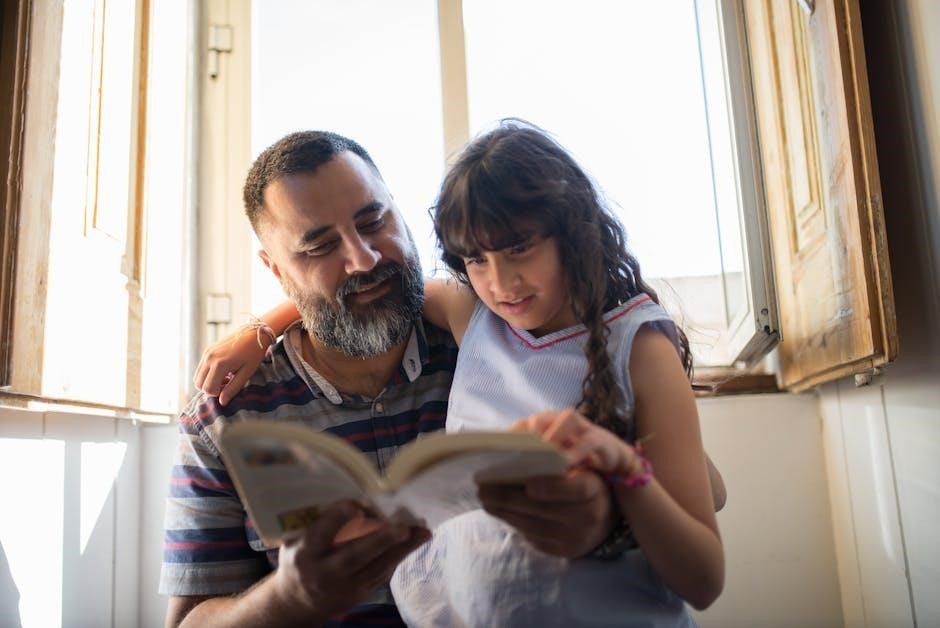Embark on an intellectual journey with our curated book guide, a beacon of knowledge for rebuilding civilization. We delve into essential literature, offering insights into history, technology, and societal structures. This guide aims to provide a foundation for a resilient future.
In an era of unprecedented global challenges, the necessity for a comprehensive rebuilding guide has never been more critical. Our world faces potential disruptions, ranging from natural disasters to societal collapses, underscoring the importance of preparedness and resilience. A well-structured rebuilding guide serves as a repository of essential knowledge, skills, and strategies, empowering individuals and communities to reconstruct civilization from scratch.
This guide transcends mere survivalism; it aims to foster a renewed and improved society. By curating insights from history, science, technology, and social sciences, we provide a holistic framework for rebuilding. This includes understanding past successes and failures, mastering fundamental technologies, establishing sustainable agriculture, and fostering just and equitable governance.
Our book guide serves as a roadmap for navigating the complexities of rebuilding, offering practical solutions and fostering critical thinking. It encourages collaboration, innovation, and adaptability, ensuring that future generations can thrive in the face of adversity. It is a testament to human ingenuity and our collective determination to create a better world.
Essential Categories of Knowledge for Rebuilding
Rebuilding civilization requires a multifaceted approach, encompassing diverse fields of knowledge. Agriculture and food production are paramount, ensuring sustenance and stability. Mastery of basic materials and mechanisms, including metallurgy and engineering, enables infrastructure development and technological advancement. Medicine and healthcare are crucial for maintaining public health and well-being, addressing injuries, and preventing disease outbreaks.
Social structures and governance play a vital role in establishing order, resolving conflicts, and fostering cooperation. History offers invaluable lessons on societal development, political systems, and cultural evolution. Understanding past successes and failures is crucial for avoiding repeating mistakes and building sustainable communities.
Furthermore, knowledge of energy production and distribution is essential for powering industries and homes. Education and communication systems are necessary for transmitting knowledge and fostering innovation. Finally, arts and culture provide meaning, purpose, and a sense of community, enriching lives and inspiring creativity during challenging times. These categories form the bedrock of a resilient and thriving civilization.

Key Books for Rebuilding Civilization
Explore our selection of key books, essential resources offering profound insights for rebuilding civilization. These titles encompass diverse fields, providing knowledge and strategies for a resilient future. Discover the wisdom within these pages.

The Knowledge: How to Rebuild Our World from Scratch by Lewis Dartnell
Lewis Dartnell’s “The Knowledge” is a crucial blueprint for rebuilding civilization after a cataclysm. It provides a detailed rundown of essential skills, from agriculture to power generation. The book outlines how humans could reconstruct society, emphasizing rudimentary yet vital techniques. Dartnell’s work is not just theoretical; it’s a practical guide.

While some skills are basic, the book is full of ideas and offers a starting point for recreating essential technologies. It addresses crucial aspects like metallurgy and basic mechanics, offering a foundation for a post-apocalyptic world. The book underscores the importance of understanding fundamental principles.

For those seeking a comprehensive manual, “The Knowledge” serves as an invaluable resource. It presents clear explanations and practical steps for rebuilding our world. It is a must-read for anyone interested in survival skills and the restoration of civilization. The book is highly recommended, providing a basic but fun and insightful reading experience.
The Ultimate Guide to Rebuilding Civilization
“The Ultimate Guide to Rebuilding Civilization” is a 400-page treasure trove detailing significant mechanisms, processes, and materials. This structured book covers discoveries in medicine, basic materials, mechanisms, military arts, hearth and home, farming, entertainment, musical instruments, and society. It’s designed to provide a comprehensive overview of crucial knowledge needed to rebuild civilization.
This book serves as an inspirational guide, offering insights into world history and ancient civilizations. It presents information in an easily accessible format, making it suitable for both children and adults. The guide’s structured approach facilitates easy learning and comprehension of complex topics.
Whether you’re interested in survival skills or simply curious about the foundations of civilization, this book is an invaluable resource. It offers a unique blend of historical context and practical knowledge. “The Ultimate Guide to Rebuilding Civilization” is a must-have for anyone interested in understanding and potentially reconstructing society. It is a structured book.
Seeing Like a State by James C. Scott
James C. Scott’s “Seeing Like a State” is a critical examination of how states attempt to simplify and control societies through imposed order. This book is essential for understanding the potential pitfalls of top-down planning when rebuilding civilization. Scott argues that large-scale social engineering projects often fail because they ignore local knowledge and complex social dynamics.
The book explores historical examples of state-led projects that resulted in unintended consequences and social disruption. It emphasizes the importance of “mētis,” or practical knowledge gained through experience, which is often disregarded by centralized authorities. Understanding these concepts is crucial for avoiding similar mistakes in any attempt to reconstruct a functioning society.
By analyzing the relationship between states and their citizens, Scott provides valuable insights into the complexities of governance and social organization. “Seeing Like a State” serves as a cautionary tale, urging planners to respect local autonomy and embrace decentralized approaches in the rebuilding process. It is essential to rebuild well.
The Mind in the Cave: Consciousness and the Origins of Art by David Lewis-Williams
David Lewis-Williams’ “The Mind in the Cave” delves into the origins of human consciousness and artistic expression through the lens of cave paintings. This book offers a unique perspective on the fundamental human need for meaning-making, which is crucial to consider when rebuilding civilization. It explores the altered states of consciousness experienced by early humans and how these experiences were translated into symbolic representations on cave walls.

By understanding the psychological and spiritual dimensions of early human societies, we can gain insights into the core values and beliefs that underpin social cohesion. The book suggests that art and ritual played a vital role in creating shared experiences and reinforcing group identity.
In the context of rebuilding civilization, “The Mind in the Cave” reminds us that material progress alone is insufficient. Re-establishing shared cultural values, fostering creativity, and providing opportunities for spiritual expression are essential for creating a fulfilling and sustainable society. Understanding the origins of art, and the mind, is an interesting perspective in rebuilding.
Guns, Germs, and Steel by Jared Diamond
Jared Diamond’s “Guns, Germs, and Steel” offers a sweeping analysis of the factors that have shaped the trajectories of human societies across the globe. This book is essential for anyone seeking to understand the deep historical roots of inequality and the environmental factors that have influenced the rise and fall of civilizations.
Diamond argues that geographical and environmental factors, rather than inherent racial or cultural differences, have been the primary drivers of societal development. He explores how the availability of domesticable plants and animals, the spread of agriculture, and the transmission of diseases have shaped the distribution of power and wealth in the world.
For those tasked with rebuilding civilization, “Guns, Germs, and Steel” provides valuable lessons about the importance of sustainable resource management, the potential consequences of environmental degradation, and the need for equitable distribution of resources. By understanding the historical patterns of societal development, we can make more informed decisions about how to create a more just and sustainable future. Understanding geography is crucial.
Sapiens: A Brief History of Humankind by Yuval Noah Harari
Yuval Noah Harari’s “Sapiens” presents a compelling narrative of human history, exploring the cognitive revolution, the agricultural revolution, and the scientific revolution, offering profound insights into how Homo sapiens came to dominate the planet. This book is invaluable for those seeking to rebuild civilization, providing a broad understanding of the forces that have shaped human societies.
Harari examines the power of shared myths and narratives in creating social cohesion and enabling large-scale cooperation. He delves into the impact of agriculture on human lifestyles and the consequences of the scientific revolution for our understanding of the world.
For those looking to rebuild, “Sapiens” emphasizes the importance of understanding human nature, the role of culture in shaping behavior, and the potential pitfalls of technological progress. By understanding our past, we can make informed choices about the future, fostering resilience, adaptability, and wisdom in the face of challenges. It is a great book that anyone can enjoy and learn from.
The Art of War by Sun Tzu
Sun Tzu’s “The Art of War” offers timeless strategic principles vital for navigating conflict and building a stable society, offering lessons in adaptability, deception, and understanding the landscape. This book’s emphasis on careful planning, resource management, and knowing your enemy is essential for anyone involved in rebuilding civilization after a collapse.
The core ideas revolve around minimizing conflict through strategic positioning and psychological warfare. Success lies in thorough preparation, efficient execution, and avoiding unnecessary battles. Understanding terrain, weather, and the strengths and weaknesses of both your forces and adversaries becomes paramount.
In a rebuilding scenario, these principles extend beyond military strategy. Resource allocation, community organization, and conflict resolution all benefit from Sun Tzu’s wisdom. Adaptability ensures survival, while strategic thinking promotes sustainable progress. By understanding the art of war, leaders can foster resilience and create a peaceful, prosperous society, making it a mandatory read.
The Richest Man in Babylon by George S. Clason
George S. Clason’s “The Richest Man in Babylon” imparts timeless financial wisdom crucial for individuals and communities striving to rebuild after a societal collapse. This book presents fundamental principles of wealth accumulation, saving, and investment through engaging parables set in ancient Babylon. Its lessons are surprisingly relevant for establishing economic stability in a new civilization.
The core message emphasizes the importance of paying yourself first, living below your means, and making your money work for you through wise investments. These principles create a foundation for financial independence and are critical for fostering a prosperous society where individuals can thrive and contribute to the collective good.
In a rebuilding context, “The Richest Man in Babylon” offers practical guidance for establishing a sustainable economy, promoting financial literacy, and creating a culture of saving and investment. Its teachings are essential for preventing future economic instability and building a resilient, prosperous society where resources are managed wisely, and wealth is distributed fairly, making it a critical resource.
The Silk Roads: A New History of the World by Peter Frankopan
Peter Frankopan’s “The Silk Roads: A New History of the World” offers a crucial perspective on global interconnectedness, vital for understanding how civilizations rise, fall, and rebuild. This book redefines world history by focusing on the Silk Roads, highlighting the exchange of goods, ideas, and technologies that shaped societies across Eurasia;
Frankopan demonstrates how the Silk Roads facilitated cultural diffusion, economic development, and political interaction between diverse regions. Understanding these historical patterns is essential for rebuilding civilization, as it reveals the importance of trade, diplomacy, and cross-cultural understanding in fostering stability and progress. The book provides insights into how civilizations can benefit from collaboration and exchange while also recognizing the challenges of managing diverse interests and potential conflicts.
In a post-catastrophic world, “The Silk Roads” offers valuable lessons on establishing trade networks, fostering international relations, and promoting cultural exchange. By understanding the historical dynamics of the Silk Roads, we can build a more connected, resilient, and prosperous civilization, learning from past successes and failures to create a better future for all, highlighting the value of global interconnectedness.
The Lessons of History by Will and Ariel Durant
Will and Ariel Durant’s “The Lessons of History” provides invaluable insights into the cyclical nature of civilizations, making it an essential resource for anyone seeking to rebuild society after a collapse. This book distills key observations from the Durants’ comprehensive study of world history, offering timeless wisdom on the forces that shape human progress and decline.
The Durants explore recurring patterns in history, such as the rise and fall of empires, the role of religion and morality, and the impact of economics and technology. Understanding these patterns can help us anticipate challenges and opportunities in the rebuilding process, allowing us to avoid past mistakes and build a more sustainable future. The book emphasizes the importance of learning from history to guide our actions and make informed decisions.
In a post-catastrophic world, “The Lessons of History” serves as a guide for navigating the complexities of rebuilding civilization. By understanding the factors that contribute to societal stability and progress, we can create institutions and structures that promote long-term prosperity and prevent future collapses. The Durants’ work offers a framework for building a resilient and thriving society, drawing on the collective wisdom of human experience, ensuring a brighter future.

Practical Skills and Information
Rebuilding requires more than just knowledge; it demands practical skills. This section covers essential areas like agriculture, basic materials, medicine, and governance. Mastering these skills ensures self-sufficiency and lays the groundwork for a sustainable and thriving civilization.
Agriculture and Food Production
Agriculture forms the bedrock of any civilization. Securing a stable food supply is paramount to survival and growth. This section delves into essential knowledge and techniques for establishing sustainable agricultural practices in a post-collapse scenario. We emphasize the importance of understanding local ecosystems, soil management, and crop selection to ensure long-term food security.
Learn about the principles of permaculture, focusing on creating self-sustaining systems that mimic natural processes. Explore traditional farming methods alongside modern techniques to maximize efficiency and resilience. Discover the secrets of seed saving, crop rotation, and pest control without relying on synthetic chemicals. This knowledge will empower you to cultivate thriving gardens and fields, even in challenging environments.
Furthermore, understanding animal husbandry is crucial for a balanced food supply. Learn about raising livestock for meat, milk, and other essential resources. We also explore alternative food sources such as foraging and aquaculture, providing a comprehensive approach to feeding a community in the face of adversity. Prioritize knowledge of food preservation techniques like canning, drying, and fermentation.
Basic Materials and Mechanisms
Rebuilding civilization requires a practical understanding of basic materials and the mechanisms that shape them into useful tools. This section focuses on acquiring knowledge of sourcing, processing, and utilizing essential materials like metals, wood, and stone, crucial for constructing shelter, infrastructure, and tools.
Explore the fundamentals of metallurgy, learning how to extract and refine metals from ores. Master woodworking techniques, from felling trees to shaping lumber for construction and crafting. Discover the properties of different types of stone and how to quarry and shape them for building foundations and creating tools.

Understanding basic mechanisms is equally important. This includes knowledge of simple machines like levers, pulleys, and inclined planes, which can amplify human effort and make complex tasks manageable. Learn about the principles of hydraulics and pneumatics, which can power machinery and automate processes. Gain insights into the workings of engines, generators, and other essential devices. By mastering these skills, you can rebuild infrastructure and create a foundation for technological advancement.
Medicine and Healthcare
In the aftermath of societal collapse, access to medicine and healthcare becomes paramount for survival and rebuilding. This section emphasizes acquiring essential medical knowledge and practical skills to address injuries, illnesses, and public health challenges. Learn about basic anatomy, physiology, and common ailments to diagnose and treat effectively.
Explore the use of medicinal plants and herbs for creating natural remedies. Master first aid techniques, including wound care, fracture management, and CPR. Understand the principles of sanitation and hygiene to prevent the spread of infectious diseases. Learn how to purify water, manage waste, and create a safe living environment.
Develop skills in basic surgery, including suturing and treating infections. Acquire knowledge of childbirth and prenatal care. Understand the importance of nutrition and how to create a balanced diet using available resources. By focusing on preventative care and developing practical medical skills, you can safeguard the health and well-being of your community and contribute to rebuilding a thriving society.

Social Structures and Governance
Rebuilding civilization necessitates establishing functional social structures and effective governance systems. This involves understanding the principles of social organization, conflict resolution, and leadership. Explore different forms of governance, from direct democracy to representative systems, and their implications for stability and justice. Learn about the importance of establishing clear rules and laws to maintain order and protect individual rights.
Understand the dynamics of community building and how to foster cooperation and trust among diverse groups. Develop skills in mediation and negotiation to resolve disputes peacefully. Explore the role of education in shaping social values and promoting civic engagement. Learn how to create inclusive societies that value diversity and promote equality.
Consider the importance of establishing economic systems that provide for the basic needs of all members of society. Explore different models of resource allocation and wealth distribution. Understand the ethical considerations involved in governance and the importance of accountability and transparency. By developing strong social structures and effective governance systems, you can create a resilient and just society capable of overcoming challenges and building a brighter future.

